Exploring the Great Composers
A fascinating series in words and music








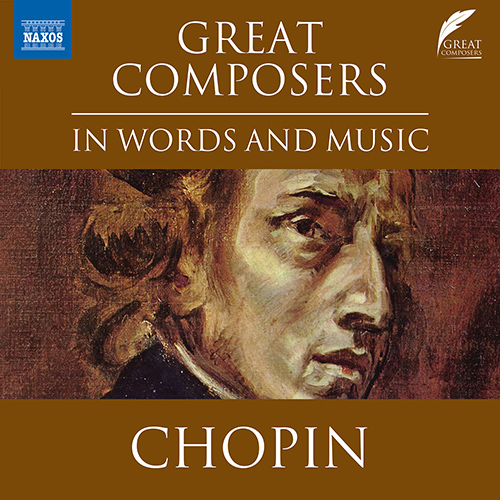
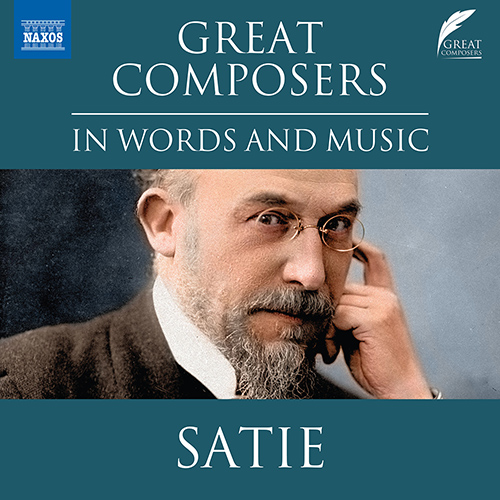
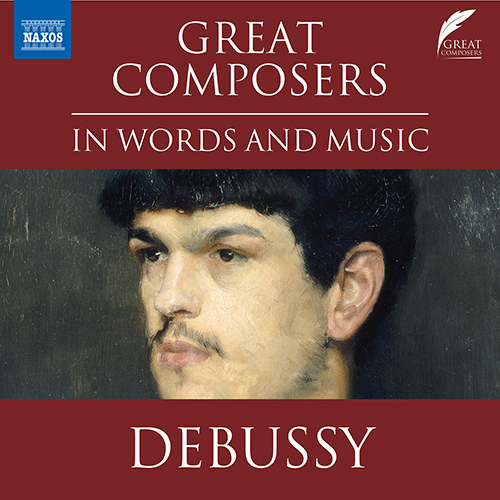
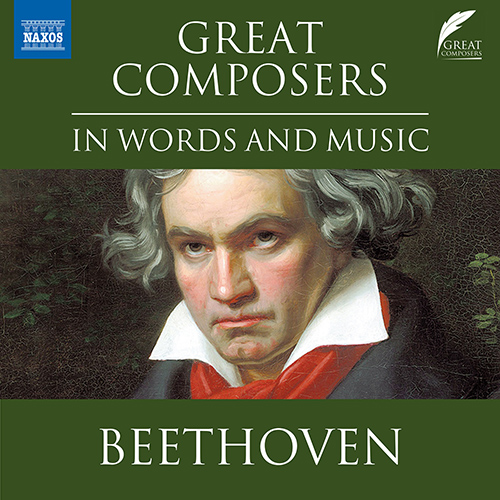
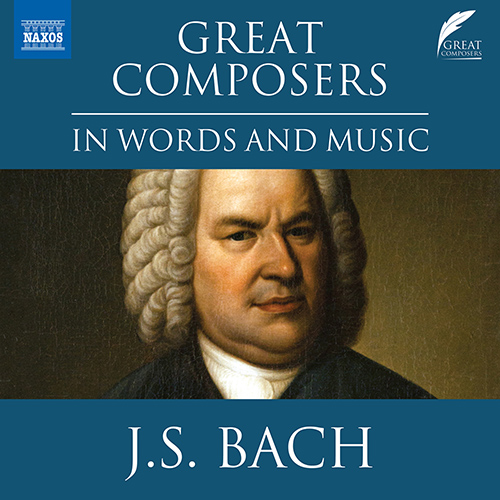
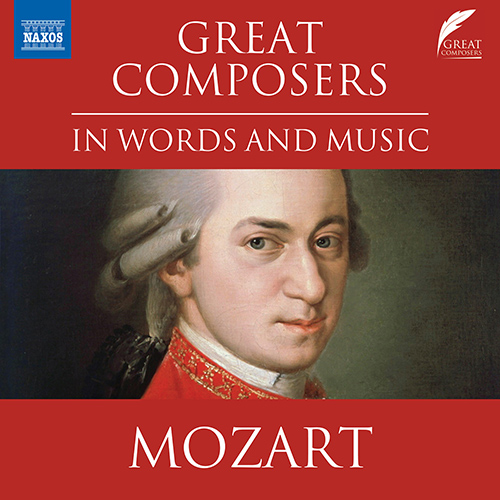
George Frideric HANDEL (1685–1759)
Handel’s Music for the Royal Fireworks and Water Music, two of his greatest orchestral achievements, have become synonymous with mid-18th-century England and with the pomp, ceremony and tradition of British royalty. But is this music necessarily synonymous with Handel? Where did his eclecticism and experimentalism come from? How and why did he conquer the emerging genre of the English oratorio and what were the circumstances that allowed him to become one of opera’s greatest composers? This revealing audio biography is accompanied by musical examples drawn from his orchestral and instrumental music, his cantatas, oratorios, operas and those two famous royal commissions.
Richard WAGNER (1813–1883)
The Bayreuth Festspielhaus stands today as a testament to Richard Wagner’s ambition and self-importance – a theatre designed and built solely for the performances of his immersive ‘music dramas’. From the influence of Beethoven to the transcendental properties of his greatest music, Wagner’s work became a cornerstone of European musical culture, but what kind of journey took him towards this remarkable achievement? In this fascinating audio biography we hear about Wagner’s tempestuous personal life, his controversial political views and his struggles to establish himself as one of the most influential musical visionaries of the 19th century. The narrative is illustrated with excerpts from all of his best-loved operas including the Ring cycle, Tristan und Isolde, Lohengrin, Der fliegende Holländer, Parsifal, and more.
Robert SCHUMANN (1810–1856)
The unresolved and ambiguous details of Robert Schumann’s psychological decline and death have tended to dominate his biography. Yet in his time Schumann was lauded as a protean Romantic literary genius whose writings, as a music critic, poet, novelist and dramatist, eclipsed his musical creativity. How did Schumann reconcile these elements? Does his music suggest he suffered from bipolar disorder? How did his pianist wife, Clara, influence his compositions? The narration is illustrated with some of Schumann’s finest works including excerpts from the symphonies, his song cycle Dichterliebe, the piano works Papillon and Carnaval, and the Piano Concerto, among others.
Franz SCHUBERT (1797–1828)
Franz Schubert was regarded chiefly as a composer of domestic music, and during his all-too-brief life managed to publish only a quarter of his works. Without patronage and without ever becoming well known or a virtuoso, how did Schubert manage to achieve unprecedented expressivity in song composition, or to create his chamber, symphonic and piano masterpieces? And how did he reconcile the warring elements of his tempestuous personality? This vivid biographical narrative includes selections from his most popular works including the String Quintet in C major and the ‘Trout’ Quintet, as well as the symphonies, and examples from his Lieder and stage works.
Felix MENDELSSOHN (1809–1847)
Felix Mendelssohn was a child prodigy to rival Mozart and achieved great fame during his lifetime, fêted across Europe, and composing in the widest possible range of musical genres. However, his music has also been denigrated for its elegance, charm and symmetry. This insightful biography explores the breadth of his achievements, the complexities of his privileged upbringing, and the reasons for the fluctuating nature of his reputation. Musical excerpts include the Violin Concerto, String Octet and Elijah, as well as his choral works, symphonies, sonatas and songs.
Modest MUSSORGSKY (1839–1881)
The Great Gate of Kiev resounds to the tumultuous bell rings that end Pictures at an Exhibition, one of the most magnificent and virtuosic of all piano pieces. However, to some of his contemporaries, Modest Mussorgsky was ‘insane’ and ‘a perfect idiot’. Born into a wealthy land-owning family, what drove this tormented man and why did he suffer with psychological breakdowns and alcoholism? How did he achieve a command of the realist idiom in his stage works? Illustrated with some of Mussorgsky’s finest works, the biographical narrative includes excerpts from Songs and Dances of Death, Boris Godunov, Night on Bald Mountain and, of course, Pictures at an Exhibition.
Antonín DVOŘÁK (1841–1904)
The music of Bohemian composer Antonín Dvořák is suffused with natural nobility, fluency and freshness, and embodies the spirit of his native land. This revealing biography portrays Dvořák as a complex and wide-ranging composer, and explores the creation and performance of his music as well as its reception on both sides of the Atlantic, tracing his art in all its richness and variety. Musical excerpts include the Cello Concerto, the ‘New World’ Symphony and the Slavonic Dances, as well as selected chamber pieces, songs, opera excerpts, and more.
Pyotr Il’yich TCHAIKOVSKY (1840–1893)
Is there any music more instantly recognisable and beautifully scored than Tchaikovsky’s wildly popular ballet Swan Lake? These and other works have become enduring classics, yet they were not uncontroversial in Tchaikovsky’s day, and there are those that still wonder if his style is fundamentally European or ardently Russian. Find out more about Tchaikovsky’s childhood obsession with music, his turbulent relationships with friends and colleagues, and how he overcame the deepest of personal crises to transcend all with a creative ambition that has left us with some of the greatest music ever written. The narrative is illustrated with musical excerpts from Piano Concerto No. 1, Symphonies Nos. 4 and 6, the 1812 Overture, The Nutcracker, Swan Lake and The Sleeping Beauty, among others.
Fryderyk CHOPIN (1810–1849)
Polish by birth, Fryderyk Chopin made his name in post-Revolutionary Paris and is often depicted as the archetypal Romantic artist – blessed with extraordinary talent but consumed by the flame of genius, tormented by intense and tempestuous relationships and doomed to an early death. But how much of this story is based on fact? This account of Chopin’s life and times separates myth and reality. Illustrated with numerous musical examples, the narrative takes us from his youthful beginnings as ‘a second Mozart’ to the darkness and light of his life and the brilliance of his work.
Erik SATIE (1866–1925)
Famous today for his Trois Gymnopédies, Erik Satie was an eccentric and solitary figure who was nevertheless viewed by some as a prophet of French musical modernism, his striking creativity championed by Ravel and Debussy. From tragedy and trauma in his early years, through his time as a pianist and Parisian provocateur at Le Chat Noir cabaret, and as house composer to the mystical Rose+Croix cult and beyond, Satie’s eventful life is told in this fascinating revue of a composer whose unique music is still influential today. The narrative is illustrated with musical excerpts from works including Gymnopédie No. 3, Gnossienne No. 3, Sports et Divertissements, Trois Morceaux en forme de poire and Relâche, among others.
Claude DEBUSSY (1862–1918)
Claude Debussy is regarded by many as the quintessential French composer, with music that invited both warm applause and frosty criticism in his day. While our ears no longer hear him as controversial, his works heralded the dawn of an artistic period founded on innovation and experiment, and a desire to break with the past in search of new expressive means. With never a dull moment, Debussy went from being a musical misfit at the Paris Conservatoire to bohemian life amongst the Symbolist poets with involvement in some scandalous love affairs. The transformative effect of pieces such as the Prélude à l’après-midi d’un faune eventually saw him awarded the Chevalier of the Légion d’Honneur in 1903. The narrative is illustrated with musical excerpts from Children’s Corner, String Quartet in G minor, Images, Nocturnes and Pelléas et Mélisande, among many others.
Ludwig van BEETHOVEN (1770–1827)
When we think of Ludwig van Beethoven images of a stormy and passionate but tortured genius are brought to mind, alongside the transformative effect of his work on musical history. All of these things are true, but no artist lives in a vacuum, and even music that opens a portal onto ‘the infinite realm of the spirit’ has its wider context. Illustrated with music from each period, this enlightening life history tells us about Beethoven’s place in society from his earlier career as a fine pianist, his life on the edge of the Napoleonic war, his professional triumphs and many romantic misfortunes, and that famous defiance of deafness and declaration that he would ‘seize Fate by the throat’. The musical excerpts include the ‘Pathétique’ and ‘Moonlight’ Sonatas, ‘Diabelli’ Variations, Symphonies Nos. 2, 3, 6 and 9, ‘Emperor’ Concerto, Missa solemnis and Fidelio, among many others.
Johann Sebastian BACH (1685–1750)
Johann Sebastian Bach today has a reputation as the Godfather of Western European music, as a fountainhead of classical music theory and the creator of some of the greatest works the world has ever produced. Better known as a keyboard virtuoso, Bach was not regarded as a genius in his day, so how did this headstrong and belligerent but ambitious young musician become so extraordinarily productive? What were his influences? How did he end up in jail and what did he get up to in Café Zimmerman? Discover all of this and more in this fascinating biography of a composer who, to Max Reger, represented ‘the beginning and the end of all music’. The narrative is illustrated with musical excerpts including the Brandenburg Concertos, Concerto for Two Violins in D minor, Harpsichord Concerto in D minor, The Art of Fugue, St Matthew Passion and the Mass in B minor among many others.
Wolfgang Amadeus MOZART (1756–1791)
Tchaikovsky declared that Mozart was ‘full of divine beauty’, and Schubert’s wonder at the ‘countless images of a brighter and better world’ that Mozart was able to conjure up through his music knew no bounds. Many of us carry the image of Mozart as a transcendent genius, but what do we really know about his life and career, and indeed his music? This entertaining and informative biography takes us from Mozart’s beginnings as a child prodigy to his greatest successes and cruellest setbacks. The narrative is illustrated with music from each stage of Mozart’s intense career, including the ‘Jupiter’ Symphony, Clarinet Concerto, Coronation Mass, Requiem, Don Giovanni, The Magic Flute, The Marriage of Figaro and many more.






